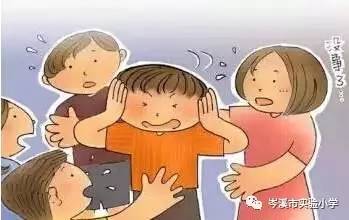心理感冒三种调节方式是什么
Title: Three Effective Ways to Regulate Psychological "Colds"
Introduction:
In the realm of mental health, experiencing a "psychological cold" can be akin to experiencing a temporary setback in emotional wellbeing. Just like physical illnesses, psychological colds require attention and care for recovery. Here, we delve into three effective ways to regulate and overcome such emotional downturns.
1. SelfReflection and Mindfulness:
Selfreflection and mindfulness serve as potent tools in combating psychological colds. Take time to introspect and identify the root causes of your emotional distress. This could involve journaling, meditation, or simply quiet contemplation. By acknowledging your feelings without judgment, you can gain insight into your thought patterns and emotional triggers.

Practicing mindfulness also helps in staying grounded in the present moment, preventing rumination on past events or anxiety about the future. Engage in activities that promote mindfulness, such as deep breathing exercises, yoga, or walking in nature. Cultivating a habit of mindfulness fosters resilience and equanimity in the face of challenges.
2. Seek Support and Connection:
Human connection plays a pivotal role in emotional wellbeing. During times of psychological cold, reach out to trusted friends, family members, or mental health professionals for support. Opening up about your feelings not only provides catharsis but also offers perspective and validation.
Joining support groups or engaging in community activities can also provide a sense of belonging and understanding. Sharing experiences with others who have faced similar struggles can alleviate feelings of isolation and foster empathy. Remember, it's okay to ask for help when needed, and seeking support is a sign of strength, not weakness.
3. Engage in SelfCare Practices:
Selfcare is nonnegotiable when it comes to regulating psychological wellbeing. Establishing healthy habits in various domains of life contributes to overall resilience and vitality. Prioritize activities that nourish your body, mind, and spirit.
Physical selfcare involves getting adequate sleep, nourishing your body with nutritious food, and engaging in regular exercise. A healthy lifestyle forms the foundation for emotional resilience. Additionally, allocate time for activities that bring you joy and fulfillment, whether it's pursuing hobbies, practicing creativity, or spending time in nature.
Emotional selfcare entails setting boundaries, practicing selfcompassion, and engaging in activities that promote relaxation and stress reduction. Whether it's taking a warm bath, listening to soothing music, or indulging in a favorite pastime, prioritize moments of selfsoothing and rejuvenation.
Conclusion:
Regulating psychological "colds" requires a multifaceted approach that encompasses selfawareness, social connection, and selfcare practices. By incorporating selfreflection, seeking support, and prioritizing selfcare, individuals can navigate through emotional downturns with resilience and grace. Remember, just as physical illnesses require treatment and care, so too do our emotional struggles deserve attention and nurturing. Embrace these strategies as powerful tools on your journey toward emotional wellbeing and fulfillment.











